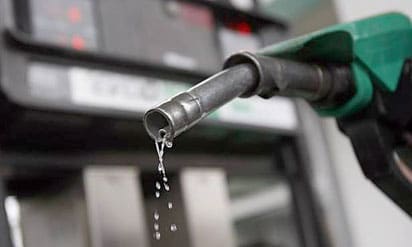
Industry experts have reacted to the World Bank’s $800 million loan to Nigeria as a palliative to cushion the effect of the proposed fuel subsidy removal by June.
OsunDaily News recalls that at last week’s Federal Executive Council (FEC) meeting, the Minister of Finance, Budget and National Planning, Mrs Zainab Ahmed, disclosed that Nigeria secured an $800 million loan from the Washington-based World Bank to serve post-subsidy removal palliatives for the Nigerians.
Ahmed submitted at the meeting that the loan which is a post-subsidy palliative plan would be distributed to 50 million Nigerians representing 10 million households to cushion the effect of fuel removal by the federal government.
However, as good as the purpose of this loan sounds, experts in the industry have come out to describe the idea as strange.
According to them, the country already has a debt stock of N46.23 trillion and now a collection of $800 million.
Speculations are that the loan would not achieve its purpose just like others as alleged by certain quarters.
This current administration has announced its intention to stop fuel subsidies before the inauguration of the incoming administration on 29th May 2023.
Reacting to the latest loan from the World Bank, the Director of the Centre for the Promotion of Private Enterprise, Muda Yusuf said borrowing to fund post-fuel subsidy removal palliatives is strange.
Yusuf told Daily Post that fuel subsidies do not involve borrowing, but the practice had been that palliatives were funded from the savings from the subsidy removal, therefore, fuel subsidy removal and palliatives should be left for the incoming administration to handle.
He stated that “First, any conversation on subsidy removal and palliatives should be left for the incoming administration.
“We have had subsidy-related palliatives, and none involved borrowing.
“The practice had been that palliatives were funded from the savings from subsidy removal, which makes the current proposition rather strange.
“Besides there are policy dimensions to the delivery of palliatives. The government needs to explore fiscal and monetary policy options to incentivize investment in sectors that could mitigate the pains of subsidy removal.
“These include investors in refineries, pipelines, petrochemicals, marketing, and fertiliser plants, among others. There should also be incentives to facilitate investment in the power sector, use of autogas.”
Similarly, in his reaction, the CEO of SD & D Capital Management, Mr Idakolo Gbolade said with the state of the country’s economy, fuel subsidy removal is non-negotiable.
He explained that the funds that would be realised from subsidy removal would reduce the federal government’s debt burden.
He was however worried that if the said $800 loan from the World Bank is not properly channelled, fuel subsidy removal would cause more pain to already stressed Nigerians.
Gbolade explained that “Removing subsidy is non-negotiable if the incoming government wants to restructure the economy, eradicate waste and free up funds for infrastructural development.
“However, it will add more pressure on the already stressed populace, hence the need for impactful palliatives that are properly channelled.
“The $800 million from the World Bank, if properly utilised, can reduce the pains of subsidy removal.
“It is noted that this could increase the debt burden, but on the flip side, funds realised from subsidy removal could help the government reduce its debt outlines for financing the 2023 budget.
“The incoming government must immediately start looking at ways of restructuring the revenue profile of the government with a view of increasing it and making the country attractive for more foreign investment in key areas of our economy.”


